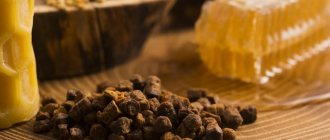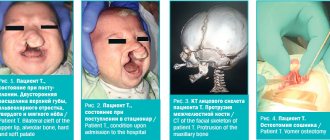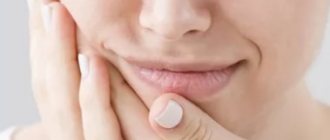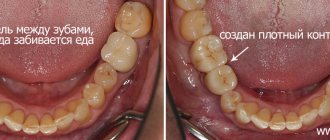Good day!
My name is Khalisat Suleymanova - I am a herbalist. At the age of 28, I cured myself of uterine cancer with herbs (read more about my experience of recovery and why I became a herbalist here: My story). Before being treated using traditional methods described on the Internet, please consult with a specialist and your doctor! This will save your time and money, since the diseases are different, the herbs and treatment methods are different, and there are also concomitant diseases, contraindications, complications, and so on. There is nothing to add yet, but if you need help in selecting herbs and treatment methods, you can find me at my contacts: Khalisat SuleymanovaInstagram page: instagram.com/fitoterapevt1
Telephone: 8
Email: [email protected]
I consult for free.
Dentists promise white teeth, healthy gums and a beautiful smile. Of course, such procedures are not cheap; not every person can afford teeth whitening and gum strengthening. But a folk remedy for dental treatment is suitable - tincture of calamus and propolis, which will cost much less.
What are adhesions in gynecology
Adhesive disease of the pelvic organs in women is a complication after which fibrinous connective tissue grows between the pelvic and abdominal organs.
In this way, the body tries to protect the source of inflammation - due to excess tissue, the fallopian tubes, uterus, ovary and intestinal loops stick together, pull tightly together, which disrupts their functions. Adhesive processes can be of several types, depending on the “neglect”:
- Formation of single thin adhesions (synechia).
- Synechiae become denser, covering up to 50% of the surface of the ovary.
- The adhesions are dense and numerous, changing the position of organs or causing their deformation.
Adhesions cause pain and disturbances in the functioning of the pelvic organs. They appear after gynecological diseases or operations and can lead to serious complications: ectopic pregnancy, infertility, frequent inflammation and more.
To prevent the occurrence of adhesions, avoid complications and prescribe competent treatment, make an appointment with the doctors of the Doctor A clinic. We employ gynecologists of the first and highest qualification categories
Calamus and propolis recipes for teeth
To prepare a medicinal tincture for teeth according to B.V. Bolotov, you need to buy a package (40 g) of calamus rhizomes, 20 g of propolis and 1 liter of vodka or alcohol at the pharmacy. The process takes place in three stages:
- Calamus tincture is being prepared. A package of crushed roots is filled with 0.5 liters of vodka. Cover with a lid and keep for 7 days.
- Propolis tincture is being prepared. 20 g of the crushed product is placed in a glass container, poured with 0.5 liters of vodka, and tightly closed with a lid. Keep for 14 to 21 days. The longer the product is infused, the more beneficial it turns out.
- The prepared products are mixed in equal proportions before each use.
You can buy propolis for teeth and calamus in the pharmacy in the form of ready-made tinctures. But their quality characteristics are usually worse than those prepared at home.
What causes adhesions to form in the pelvis
Inflammation of the pelvic organs. The disease is diagnosed in women who have suffered acute inflammation or suffer from chronic:
- colpitis;
- endometritis;
- andexite;
- parametritis and other diseases.
Operations. Adhesive disease appears in 16% of those operated for the first time and in 96% of women after the third operation. The percentage is high for laparotomy operations:
- appendectomy;
- C-section;
- removal of appendages;
- hysterectomy;
- supravaginal amputation.
Pelvic hemorrhages. The trigger is ovarian apoplexy, bleeding due to a ruptured tube during an ectopic pregnancy.
Endometriosis. The formation of fibrinous ties is provoked by endometrioid growths, which spread to the organs and peritoneum of the pelvis.
Pelvic injuries. Open and closed damage after accidents, falls from a height received at work are one of the reasons for the appearance of adhesions.
Predisposing factors. The occurrence and development of the disease is influenced by:
- invasive gynecological interventions;
- promiscuous sex life;
- late visit to the clinic.
Conservative and surgical treatment of cysts
In the early stages, in the absence of complications, a conservative method is acceptable. The root canal is drilled and cleaned. The capsule with pus is opened and cleaned, and a composition with an antibiotic is poured inside. Next, a bone tissue regeneration paste is applied and a filling is installed. A control check after 6 months demonstrates the absence of a cyst on an x-ray in 80% of cases
Surgical treatment is prescribed if there is no result. With the help of cystectomy, the affected part of the tooth and the capsule with pus are completely removed. Cystectomy is an operation that not all dental surgeons can do. Hemisection is often used, which gives a 100% result and is prescribed for severe root damage. All affected tissue is removed, and the appearance of the tooth is restored with a crown or composite composition.
Adhesions in gynecology: symptoms
The adhesive process can be both acute and chronic, or have a periodic nature (with periodic exacerbation of symptoms). Often, women do not notice any symptoms of adhesions in the pelvis, and the disease is discovered only when examining the possible causes of infertility.
Signs of adhesions in the pelvic cavity:
- Painful sensations in the lower abdomen, lower back, above the pubis or in the sacral area;
- Discomfort during physical activity, before menstruation, after stressful situations;
- Pain during sexual intercourse or urination;
- Intestinal disorders: diarrhea, constipation, flatulence;
- Periodic attacks of nausea and vomiting.
Symptoms may worsen when consuming foods that increase gas formation.
Application
The remedy will be useful for painful sensations of various etiologies, darkening of the enamel, and for normalizing the condition of the gums. Due to the numerous beneficial properties of propolis and calamus, it is recommended to use a tincture based on them for:
- caries;
- periodontitis;
- inflammation of the trigeminal nerve;
- jaw cyst;
- granuloma of the tooth;
- pulpitis;
- gingivitis;
- oral infections.
It is especially recommended to use the tincture before prosthetics. Regular rinsing helps strengthen dentin and prevents damage to teeth under crowns.
Diagnosis of the disease
Diagnosis of adhesions in the pelvis is carried out using various studies:
- Diagnostic laparoscopy. This method can most accurately see adhesions and assess the severity of the process. Diagnosis is carried out under local (or general) anesthesia; a small incision is made through which a camera is inserted.
- Ultrasound of the pelvic organs;
- Hysterosalpingography (performed using X-rays or ultrasound and contrast agents);
- MRI of the pelvic organs.
The necessary examination (or set of examinations) will be prescribed to you by your attending physician.
Chemical characteristics
The rich composition of this perennial plant allows you to cure diseases of teeth and gums. The ancient Greeks and Romans already knew that calamus helps with toothache and bleeding gums. The rhizome contains:
- complex essential aromatic oils;
- tannins;
- phytoncides;
- starch;
- organic acids;
- tannins;
- resins;
- ascorbic acid;
- palmitic acid;
- iodine;
- aromatic azarinaldehyde;
- macro and micro elements;
- vitamins.
Calamus oil appears as a yellow or light brown liquid. The oil tastes spicy-bitter and smells like a lava leaf. Rhizomes have wound-healing, soothing, and disinfectant effects. In addition, the root can produce an analgesic effect.
How to treat adhesions in the pelvis
What to do if adhesions are found in the pelvis? Depending on the severity of the adhesive process, the doctor will select the appropriate treatment for you.
To treat single thin adhesions in the pelvis in women, drug therapy is used. What is usually prescribed:
- Antibiotics and antimicrobial agents (to relieve inflammation);
- Non-steroidal anti-inflammatory drugs (as a pain reliever);
- Fibrinolytic agents (for resorption of adhesions);
- Vitamins and immune system regulators (to restore immune balance);
- Hormonal drugs (in cases where adhesions are caused by endometriosis).
Additionally, physiotherapy, balneotherapy and mud therapy may be prescribed as auxiliary measures.
In more severe forms of adhesive disease, a surgical method is used to treat adhesions in the pelvis, i.e. their dissection. The most gentle surgical procedure is manipulative laparoscopy. To prevent re-formation of adhesions, hyaluronic acid is injected into the surgical area.
How to use calamus to treat gums?
Recipe for a decoction for rinsing gums with calamus root
This decoction is effective for all forms of periodontal disease:
- The rhizome is crushed and brewed with slightly cooled boiling water. The product is brought to a boil again and infused for about 15 minutes.
- The strained and cooled decoction is used for rinsing the mouth.
- The intensity of the procedures is 2-3 times daily for a month.
Alcohol tincture of calamus for gums
Recipe:
- To prepare an effective drug, you need to purchase calamus rhizome.
- Dry raw materials are crushed and filled with alcohol. It is recommended to keep the proportions 1:5.
- The product is infused in a dark place for at least seven days and is used for healing applications.
- The intensity of treatment procedures is 2-3 times weekly for one and a half months.
- To carry out the manipulations, you will need a sterile gauze turunda, which is soaked in tincture and applied to the affected area for 10-15 minutes.
- After the procedure, the pain disappears and the damaged tissues heal quickly.
Is it possible to get pregnant during adhesions?
Adhesions disrupt the proper functionality of the reproductive organs, which greatly reduces the chance of getting pregnant. There is a chance of pregnancy and its successful gestation, especially in cases where the adhesive process affected only one tube. But the likelihood of conception decreases, and the risk of ectopic pregnancy and miscarriage also increases.
In this case, IVF may help. The fallopian tubes are not involved in such fertilization, and a 3-5-day-old embryo is immediately implanted into the uterine cavity.
Features of application
For dental diseases, mix each tincture in a 50:50 ratio. Take 2 tablespoons of the prepared solution and rinse your mouth for at least two minutes. With daily use, the pain goes away after 3-5 days.
To eliminate the bitter taste of the tincture, you can add 1 tablespoon of water to the prepared recipe.
After rinsing, the mixture is not swallowed, but spat out, as pathogenic bacteria have accumulated in it. It is recommended to rinse before going to bed, as well as when pain occurs, to achieve an anesthetic effect.
After using the product, ulcers located inside the teeth may open on the gums. After the pus comes out, the gums will become healthy again. It is recommended to use the tincture daily for a month.
For children
Calamus and propolis are used with caution for dental treatment in children, as allergic reactions are possible. When rinsing with alcohol-based products, care must be taken to ensure that the child does not accidentally swallow it.
Any home remedy for a child must first of all be approved by a pediatrician, who will determine the course and dosage, as well as the advisability of using the remedy.
For small children, to relieve pain when teething, it is better to prepare decoctions of calamus and propolis in water. They can be stored for no longer than three days. Tampons soaked in the broth are applied to the gums.
During pregnancy and lactation
Pregnant women and nursing mothers can use the tincture as a mouth rinse, but care must be taken to ensure that the product does not get inside.
Alcohol penetrates the placental barrier and into breast milk, which can negatively affect the baby’s condition. To eliminate pain, it is better to use water tinctures of calamus and propolis.
For children and women during pregnancy and breastfeeding, it is safer to use a zabrus (honey seal) for problems with teeth and gums.
Prevention of adhesions
For the prevention and treatment of adhesions, enzyme preparations based on hyaluronidase are used. Perhaps the most popular drug for the treatment of adhesions in gynecology is Longidaza suppositories.
Prevention is mostly aimed at preventing relapses of the disease or before an upcoming operation (since adhesions often appear after them).
Remember that the best prevention is regular visits to the doctor and timely diagnosis. Don’t delay until later and sign up for a pelvic ultrasound or a consultation with a gynecologist.
If you feel acute pain in the abdominal cavity or pelvic organs, do not delay visiting a doctor - prevent the development of the disease. Doctors at the Doctor A clinic will conduct an expert examination and prescribe competent treatment. Call or make an appointment online.
Useful properties of the composition for dental treatment
The tincture is effective due to the components it contains. Calamus is an evergreen herbaceous plant with pronounced disinfectant properties. The roots are used as medicinal raw materials. They contain vitamins, microelements, fatty acids, antioxidants, tannins, and essential oils.
Even in ancient times, crushed rhizomes were used to treat purulent wounds and ulcers on the body. Today, calamus is deservedly considered one of the best plants for the prevention and treatment of oral diseases, since:
- has an astringent, disinfecting, anti-inflammatory effect;
- effectively heals ulcers and wounds that appear due to stomatitis;
- relieves bad breath, strengthens teeth during periodontitis;
- eliminates bleeding gums.
The property of calamus is known to be “sealing” the tooth. Regular use of tincture or powder stops the carious process.
Propolis is a traditional beekeeping product. It is rich in flavonoids, resins, tannins, aromatic acids, minerals, enzymes, vitamins A, E, C.
Propolis is actively used to treat wounds, ulcers, and prevent many skin diseases. Bee products are good for teeth because:
- soothes, relieves inflammation and pain;
- reduces sensitivity;
- accelerates the healing of damaged gums;
- destroys germs and prevents the spread of infection;
- removes pus.









